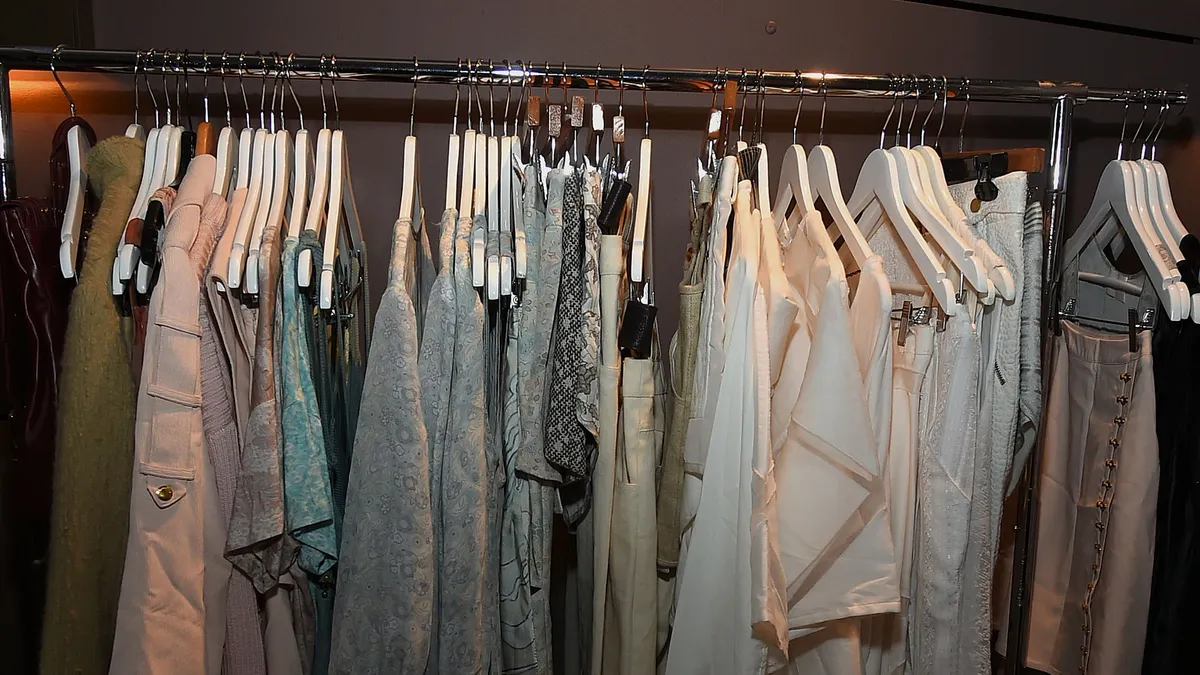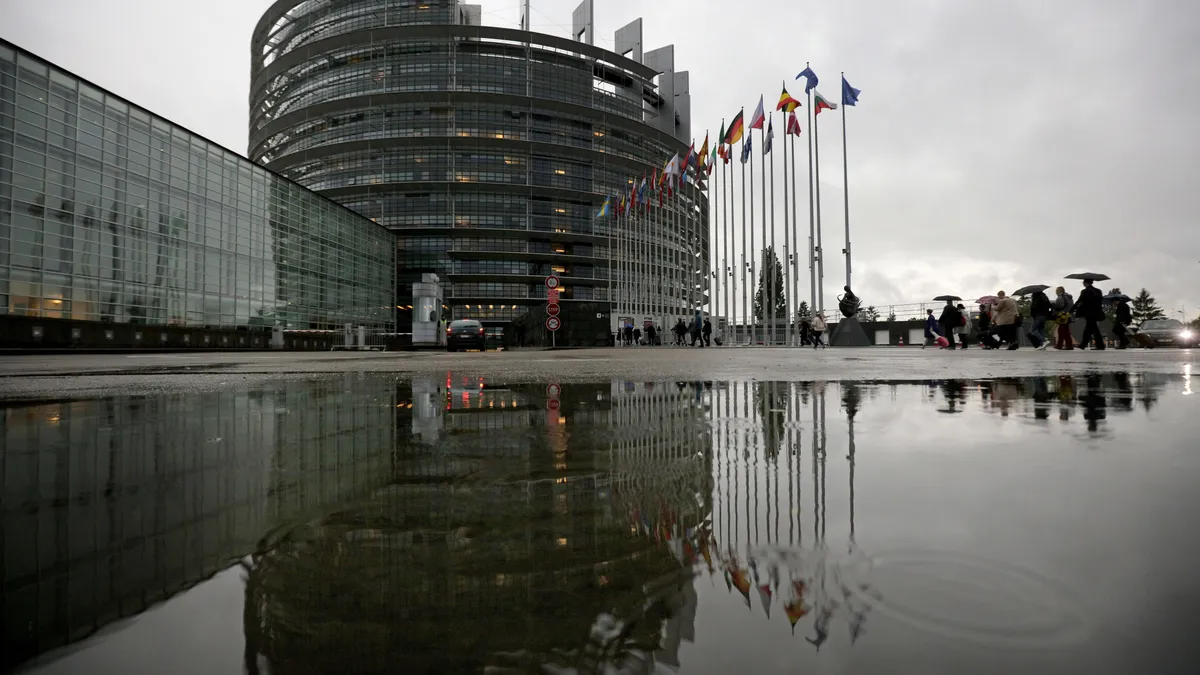Dive Brief:
- Continuing to use plastic in production will, by 2040, present “a $100 billion annual financial risk” to global businesses, due to existing and upcoming legislation, including fashion brands, according to a new report byPlasticFree, the consultancy arm of nongovernmental solutions organization A Plastic Planet.
- Litigation related to plastic use is increasing, with costs in the U.S. alone set to surpass $20 billion in 2030, according to the report.
- Recycling is not enough to avoid the financial risks, since it’s more costly to process plastics and develop the infrastructure to recycle it, the report said. “95% of plastic packaging is discarded after a short first-use cycle, equating to $80-120 billion of value lost annually,” according to the report. Only 9% of the world’s plastic has ever been recycled, per the report.
Dive Insight:
Plastic’s presence in fashion has been in the news in recent years as sustainability policies have increased, while calling attention to the textile’s problematic effect on the environment.
More than 16,000 substances are used to make plastic, and more than 4,000 of those are known to be harmful to human health, including PFAS, or “forever chemicals,” according to the report.
Although companies like Lululemon and Repreve introduced textiles made from recycled plastics, the amount of the material that will enter the ocean is still expected to triple by 2040, the report said.
“Delivering a level of protection, convenience, and affordability we had never seen before, plastic quickly won us over,” the report says, and “more than half of the world’s plastic has been created since the 2000s.”
However, in recent years, legislation has sought to reduce plastic use, with 731 new policies tackling plastic pollution coming online between 2012 and 2022, per the report. For that reason, continuing to use plastic presents a financial risk for businesses, not just because of pollution laws but to avoid fines related to carbon emissions, according to the report. This is because the production of plastic is “carbon intensive, with 90% of the material’s carbon impact coming from the production stage,” per the report.
Brands should also “consider the financial downsides of waste and excess inventory” as they grow their business and focus on reducing overproduction, according to the report.
In 2025, the United Nations’ Global Plastics Treaty, which is applicable to 175 countries, will come into force, banning types of plastic and plastic products, certain chemical additives, and setting legally-binding targets for recycling and the percentage of recycled material used in goods, said a spokesperson for Plastic Free in an email to Fashion Dive.
Plastic Free was involved in the latest treaty negotiations in April, the spokesperson said, and the fifth round of negotiations will take place at the end of 2024. The treaty may also include a “Global Plastic Pollution Fee,” paid by plastics producers, to “cover pollution prevention and remediation costs for pollution not covered by national Extended Producer Responsibility laws,” the spokesperson said.










